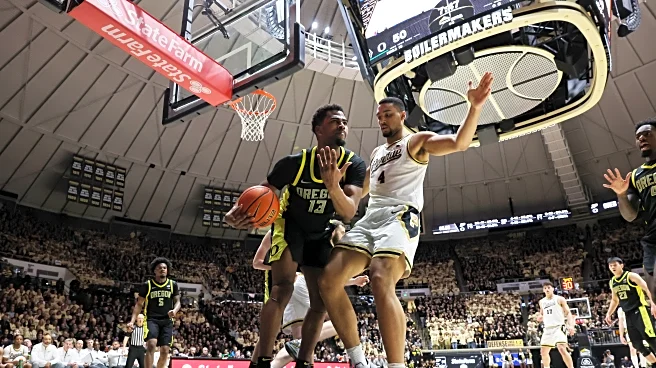Rapid Read • 7 min read
Federal law enforcement agencies have increased their presence in Washington, D.C., following President Trump's criticism of the city's crime rate. The initiative, led by the U.S. Park Police, involves agents from the Department of Homeland Security, Immigration and Customs Enforcement, the FBI, the U.S. Capitol Police, the Metropolitan Police Department, and the U.S. Marshals Service. The operation, which began on Friday, focuses on high-traffic tourist areas and other hotspots in the nation's capital. Despite local police data showing a 26% decrease in violent crime compared to last year, President Trump has expressed concerns over recent incidents, including a carjacking and assault involving Edward Coristine, a former government employee. Trump has threatened federal intervention if local authorities fail to address crime effectively.
AD
The increased federal presence in Washington, D.C., highlights the ongoing debate over crime rates and public safety in major U.S. cities. While local data suggests a decrease in violent crime, President Trump's actions underscore the political and social implications of crime perception. This move could impact local governance, as Trump has suggested federal control over the city if crime rates do not improve. The initiative may also affect tourism and the daily lives of residents, as federal agents become more visible in public spaces. The situation raises questions about the balance between federal and local authority in managing urban crime.
The operation is set to last for seven days, but it could be extended depending on its effectiveness and the evolving crime situation. President Trump has indicated that federal control of Washington, D.C., is a possibility if local authorities do not take sufficient action. This could lead to significant changes in the city's governance structure, potentially affecting the Home Rule Act of 1973, which allows residents to elect their own mayor and City Council members. The outcome of this initiative may influence similar actions in other cities facing crime-related challenges.
AD
More Stories You Might Enjoy











